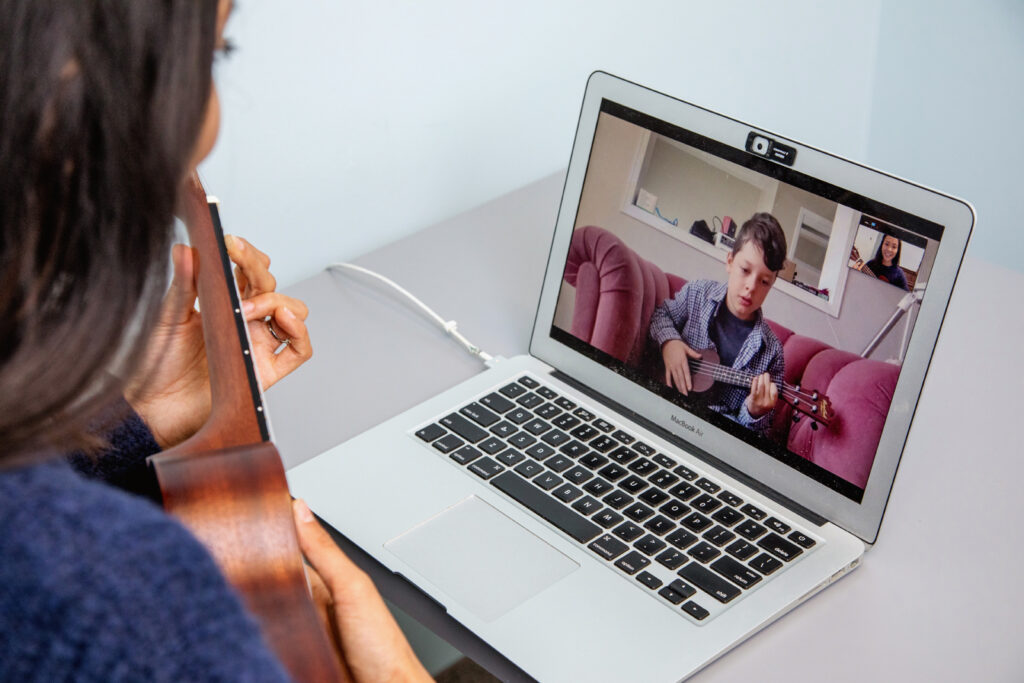Adapted Music Lessons

Music therapists offer adapted music lessons in addition to music therapy services. Why do music therapists offer this service? And how are adapted music lessons different from traditional lessons? Before answering these questions we should explain the difference between music therapy and music lessons.
Simply put, the goal of music lessons is to learn to play an instrument. In contrast, music therapy focuses on non-musical goals. Music therapy goals can be related to mental health, childhood development, or rehabilitation after an accident or injury. Sometimes music therapy will work on non-musical goals by learning an instrument. For example, a client can working on fine motor skills by playing the piano. Another example is a client improving their breath support by playing the recorder. However, the non-musical goal always remains the focus.
What are adapted music lessons?
Adapted lessons are learning to play an instrument in a non-traditional manner. This approach helps differently abled individuals learn to play an instrument with greater success. Music therapists learn about childhood development and many disabilities in their education. This knowledge helps music therapists provide learning experiences that support a student’s strengths. Additionally, their education helps inform creative ways to navigate learning barriers or challenges. Modifications are the corner stone of adapted music lessons. They can be physical, environmental, or academic.
Types of Modifications
Physical modifications may include the type or size of instrument or using assisted devices or technology. Students with lower muscle tone may struggle to hold a heavy instruments such as the guitar but may find the ukulele more manageable. Or a student with a fine motor disability may struggle to play the keys on a piano but perhaps would excel at singing. Student’s can achieve greater success when they use devices such as the chord buddy. The chord buddy plays chords on the guitar with the touch of a button.
Environmental modifications can support a student’s sensory needs or aversions. For example, adjusting the lights or the seating can help an autistic student. A student with ADHD can benefit from shorter lessons or frequent breaks. Additionally, some students benefit from learning concepts through gross motor activities.
Academic modifications support students with learning disabilities. This can include using numbers or colours to assist in reading music, teaching musical concepts through games or movement, and offering greater repetition. Academic modifications also includes supporting different learning styles (i.e. visual, auditory, or kinaesthetic learners).
Adapted music lessons are individualized. There is no one-size-fits-all method. For example, teaching a non-verbal client to play the piano would a require creative approach to teach how to read music. In contrast, a child who struggles to focus due to extreme ADHD may grasp reading music quite easily but will require frequent movement breaks and perhaps learning concepts using movement activities rather than just sitting at the piano.
Adapted music lessons are important!
If you google the benefits of music education, you can find many articles explaining why learning music is important. Most agree that music education supports brain development. Adapted music lessons provides inclusive opportunities for persons with disabilities. Learning new skills of any kind is important for a persons confidence and self-esteem. Music is a universal source of joy. When a person with a disability realizes that they can learn an instrument just like everyone else, it helps provide a sense of direction, purpose, and increased feelings of self-worth.
Heidi Flynn, RP, MTA
